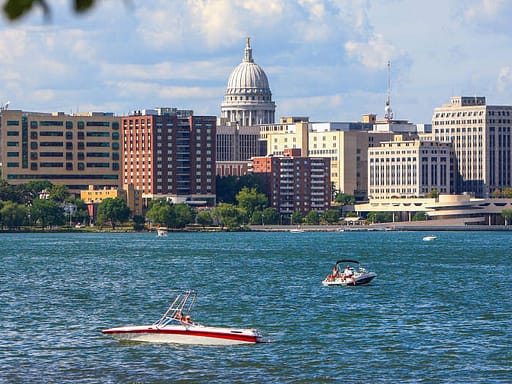Cities with the Most Stable Housing Markets
Navigating the complexities of real estate can be daunting, particularly when trying to find stability in a housing market. Some cities stand out for their consistently stable housing markets, offering resilience against economic fluctuations and a steady environment for homebuyers and investors alike. These cities showcase a blend of economic stability, diverse job opportunities, and appealing living conditions that contribute to their enduring real estate stability. Let’s explore several cities known for their stable housing markets, examining the factors that contribute to their resilience and providing insights into their affordability, home values, and key attributes that make them reliable choices for those seeking stability in real estate.
Austin, TX: A Growing Tech Hub
Austin, Texas, is renowned for its dynamic housing market, characterized by its steady growth and resilience. As a major tech hub with a booming economy, Austin has consistently demonstrated stability in its real estate sector. The city’s rapid expansion, driven by a robust tech industry and a vibrant cultural scene, contributes to its enduring appeal.
Austin’s housing market has experienced significant appreciation due to high demand and limited supply. While home values have risen considerably, the city remains attractive due to its strong economic opportunities and lifestyle benefits. The average home price in Austin has seen substantial increases, reflecting the city’s growth and desirability.
Factors Contributing to Austin’s Stability:
- Thriving Tech Industry: Major tech companies and startups, such as Google, Apple, and Tesla, have established a strong presence in Austin. This influx of technology-driven businesses ensures a steady flow of high-income professionals, sustaining housing demand and contributing to the market’s stability.
- Cultural and Lifestyle Appeal: Austin’s cultural vibrancy, including music festivals like South by Southwest (SXSW) and a diverse culinary scene, enhances its appeal. The city’s unique lifestyle attracts residents seeking a dynamic and engaging environment, supporting long-term housing market stability.
Austin’s housing market benefits from its role as a tech powerhouse and cultural hub. Despite fluctuations, the city’s strong economic base and vibrant lifestyle contribute to its ongoing stability and growth.
Denver, CO: A Hub of Outdoor and Economic Strength
Denver, Colorado, is known for its stable housing market, driven by a robust economy and outdoor recreational appeal. The city’s diverse economy, encompassing technology, healthcare, and energy sectors, supports a resilient real estate market.
Denver’s housing market has seen steady appreciation, driven by strong demand and economic growth. Home values have increased, yet the city remains relatively affordable compared to other major tech hubs. The market’s stability is reinforced by Denver’s economic diversity and outdoor lifestyle.
Factors Contributing to Denver’s Stability:
- Economic Diversification: Denver’s economy benefits from major employers such as Lockheed Martin, Comcast, and Denver Health. This economic diversification supports a stable job market and consistent housing demand, contributing to the city’s resilient housing market.
- Outdoor Recreation Appeal: Denver’s proximity to outdoor activities, including ski resorts in Aspen and Breckenridge, enhances its attractiveness. The city’s outdoor lifestyle appeal drives housing demand and supports market stability.
Denver’s housing market reflects its economic strength and outdoor allure. The city’s diverse economy and recreational opportunities contribute to its stability and enduring appeal.
Raleigh, NC: Affordability and Research-Driven Growth
Raleigh, North Carolina, is recognized for its stable housing market, characterized by affordability and steady growth. As part of the Research Triangle region, Raleigh benefits from a strong local economy driven by research, education, and technology.
Raleigh’s housing market remains relatively affordable compared to other major metropolitan areas. Home values have increased steadily due to economic growth and housing demand. The city’s lower cost of living and attractive housing options contribute to its market stability.
Factors Contributing to Raleigh’s Stability:
- Research Triangle Park: Raleigh’s housing market is bolstered by the Research Triangle Park, a significant research and development hub. The park’s expansion and presence of numerous companies drive local employment and housing demand, supporting market stability.
- Educational Institutions: Major universities, including North Carolina State University and Duke University, attract students, faculty, and staff. This educational presence contributes to a stable housing market by ensuring a continuous influx of residents.
Raleigh’s housing market benefits from its affordability and strong economic drivers. The city’s research and educational institutions provide a stable foundation for its real estate sector.
Minneapolis, MN: Diverse Economy and Cultural Appeal
Minneapolis, Minnesota, is known for its stable housing market, supported by a diverse economy and cultural appeal. The city’s economic strength is driven by a variety of industries, including finance, healthcare, and manufacturing.
Minneapolis has experienced steady home value appreciation due to a strong local economy and consistent demand. While home prices have risen, the city remains relatively affordable compared to coastal metropolitan areas. The market’s stability is reinforced by its diverse job opportunities and cultural offerings.
Factors Contributing to Minneapolis’s Stability:
- Corporate Headquarters: Minneapolis is home to major corporations such as Target, UnitedHealth Group, and 3M. The presence of these large employers supports a stable job market and consistent housing demand.
- Cultural and Recreational Events: The city’s hosting of events like the Minnesota State Fair and the Twin Cities Marathon adds to its appeal. Minneapolis’s cultural and recreational offerings attract residents and support housing market stability.
Minneapolis’s housing market reflects its economic diversity and cultural vibrancy. The city’s stable job market and urban amenities contribute to its enduring real estate stability.
Portland, OR: Sustainable Living and Lifestyle Appeal
Portland, Oregon, is recognized for its stable housing market, driven by sustainable living practices and a high quality of life. The city’s economy benefits from diverse industries, including technology, manufacturing, and tourism.
Portland’s housing market has experienced gradual appreciation, supported by the city’s sustainable development practices and lifestyle appeal. While home values have increased, the city remains relatively affordable compared to other West Coast cities.
Factors Contributing to Portland’s Stability:
- Sustainable Development Initiatives: Portland’s emphasis on sustainable living, including green building standards and extensive public transportation, supports long-term housing market stability. Initiatives like the Green Building Policy and the Portland Streetcar enhance the city’s appeal.
- Cultural and Lifestyle Events: The city’s vibrant cultural scene, including events like the Portland International Film Festival and the Portland Rose Festival, contributes to its lifestyle appeal. These events attract residents and support housing market resilience.
Portland’s housing market benefits from its commitment to sustainability and quality of life. The city’s focus on environmental practices and vibrant cultural offerings contribute to its stable and appealing real estate market.
The cities highlighted—Austin, Denver, Raleigh, Minneapolis, and Portland—demonstrate stability in their housing markets through a combination of economic strength, diverse job opportunities, and appealing living conditions. Their real estate markets reflect resilience and stability, supported by factors such as robust local economies, cultural vibrancy, and sustainable development. For those seeking stability and reliability in real estate, these cities offer compelling examples of how urban areas can maintain strength and appeal despite economic fluctuations.











